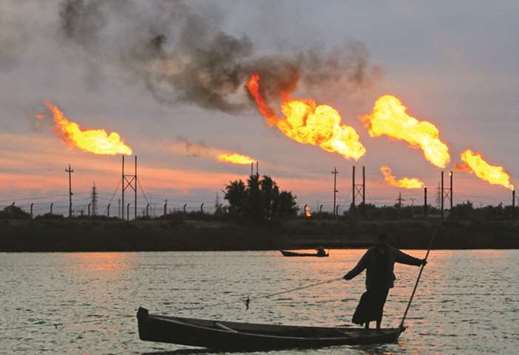Iraq is mulling an oil hedging programme to lock in prices for future crude sales, potentially topping a similar deal run by Mexico that is considered the largest energy trade in Wall Street.
The Middle Eastern nation is in the very early stages of exploring a hedge for as much as a quarter of either its crude production or exports, Falah al-Amri, the head of Iraq’s state oil-marketing company, known as SOMO, said in an interview at the Iraq Petroleum Conference in London last week.
“We will not rush. This is a long process,” al-Amri said. “We must make sure we do not lose money. You know the Iraqi parliament, it would not accept that.”
If Iraq goes ahead, that would require contracts giving price protection to about 400mn barrels a year of crude, according to Bloomberg calculations. That would be significantly larger than the Mexican oil hedge, run by the country’s finance ministry, which uses options contracts to cover about 250mn barrels a year. Petroleos Mexicanos, the state-owned oil producer also known as Pemex, this year also hedged its output, an additional 100mn barrels.
Although oil hedging is common in the private sector, for example by US shale producers to lock-in revenues and airlines to guarantee a maximum price for their jet-fuel, they are rare among oil-producing countries. On top of Mexico, only a handful other nations have publicly disclosed hedging programmes, including Ecuador and Ghana.
Oil-producing countries face a number of obstacles to hedge. Mexico has spent on average $1bn a year buying options contracts that give it the right, but not the obligation, to sell at a predetermined price. The size of the transaction could roil the market, sending prices lower. Any losses could carry a heavy political price.
Oil traders and bankers who monitor the Mexican oil hedge have said in the past the programme contributed to push oil prices lower at least in 2008 and 2014.
Al-Amri didn’t say what kind of hedging instrument Iraq could use or give a timeline for the start of the programme, saying Iraq was in a learning process.
“We are sending people for training with international companies and they will learn about hedging and how we can do it,” he said. “We will study and make a proposal to the government.”
The hedging programme would be a departure from usual business practices in the Middle East, where producers sell crude largely under long-term contracts with refiners. Iraq is already testing out new ways of selling oil, for example auctioning crude cargoes on the short-term market.
“Transforming SOMO is unstoppable. It will do more than just market Iraqi crude,” al-Amri said.

Flames emerge from flare stacks at the oil fields in Basra. Although oil hedging is common in the private sector, for example by US shale producers to lock-in revenues and airlines to guarantee a maximum price for their jet-fuel, they are rare among oil-producing countries.
